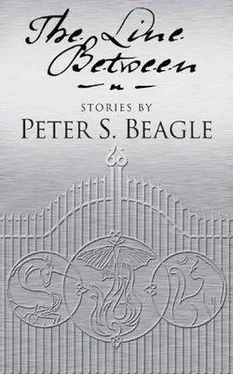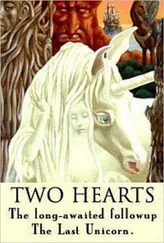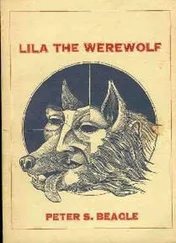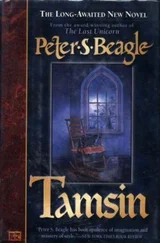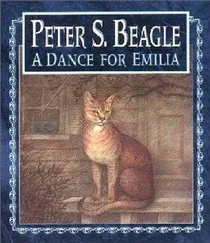Peter Beagle - The Line Between
Здесь есть возможность читать онлайн «Peter Beagle - The Line Between» весь текст электронной книги совершенно бесплатно (целиком полную версию без сокращений). В некоторых случаях можно слушать аудио, скачать через торрент в формате fb2 и присутствует краткое содержание. Жанр: Фэнтези, на английском языке. Описание произведения, (предисловие) а так же отзывы посетителей доступны на портале библиотеки ЛибКат.
- Название:The Line Between
- Автор:
- Жанр:
- Год:неизвестен
- ISBN:нет данных
- Рейтинг книги:5 / 5. Голосов: 1
-
Избранное:Добавить в избранное
- Отзывы:
-
Ваша оценка:
- 100
- 1
- 2
- 3
- 4
- 5
The Line Between: краткое содержание, описание и аннотация
Предлагаем к чтению аннотацию, описание, краткое содержание или предисловие (зависит от того, что написал сам автор книги «The Line Between»). Если вы не нашли необходимую информацию о книге — напишите в комментариях, мы постараемся отыскать её.
The Line Between — читать онлайн бесплатно полную книгу (весь текст) целиком
Ниже представлен текст книги, разбитый по страницам. Система сохранения места последней прочитанной страницы, позволяет с удобством читать онлайн бесплатно книгу «The Line Between», без необходимости каждый раз заново искать на чём Вы остановились. Поставьте закладку, и сможете в любой момент перейти на страницу, на которой закончили чтение.
Интервал:
Закладка:
The Fable of the Octopus
Once, deep down under the sea, down with the starfish and the sting rays and the conger eels, there lived an octopus who wanted to see God.
Octopi are among the most intelligent creatures in the sea, and shyly thoughtful as well, and this particular octopus spent a great deal of time in profound pondering and wondering. Often, curled on the deck of the sunken ship where he laired, he would allow perfectly edible prey to swim or scuttle by, while he silently questioned the here and the now, the if and the then, and — most especially — the may and the might and the why. Even among his family and friends, such rumination was considered somewhat excessive, but it was his way, and it suited him. He planned eventually to write a book of some sort, employing his own ink for the purpose. It was to be called Concerns of a Cephalopod, or possibly Mollusc Meditations.
Being as reflective as he was, the octopus had never envisioned God in his own image. He had met a number of his legendary giant cousins, and found them vulgar, insensitive sorts, totally — and perhaps understandably — preoccupied with nourishing their vast bodies; utterly uninterested in speculation or abstract thought. As for his many natural predators — the hammerhead and tiger shark, the barracuda, the orca, the sea lion, the moray eel — he dismissed them all in turn as equally shallow, equally lacking in the least suggestion of the celestial, however competent they might be at winkling his kind out of their rocky lairs and devouring them. The octopus was no romantic, but it seemed to him that God must of necessity have a deeper appreciation than this of the eternal mystery of everything, and surely other interests besides mating and lunch. The orca offered to debate the point with him, from a safe distance, before an invited audience, but the octopus was also not a fool.
For a while he did consider the possibility that the wandering albatross might conceivably be God. This was an easy notion for an octopus to entertain, since he glimpsed the albatross only when he occasionally slithered ashore in the twilight, to hunt the small crabs that scurried over the sand at that hour. He would look up then — difficult for an octopus — and sometimes catch sight of the great white wings, still as the clouds through which they slanted down the darkening sky. «So alone," he would think then. «So splendid, and so alone. What other words would suit the nature of divinity?»
But even the beauty and majesty of the albatross could never quite satisfy the octopus's spiritual hunger. It seemed to him that something else was essential to fulfilling his vision of God, and yet he had no word, no image, for what it should be. In time this came to trouble him to the point where he hardly ate or slept, but only brooded in his shipwreck den, concerning himself with no other question. His eight muscular arms themselves took sides in the matter, for each had its own opinion, and they often quarreled and wrestled with each other, which he hardly noticed. When anxious relatives came to visit, he most often hid from them, changing color to match wood or stone or shadow, as octopi will do. They were strangers to him; he no longer recognized any of them anymore.
Then, as suddenly as he himself might once have pounced out of darkness to seize a flatfish or a whelk, a grand new thought took hold of him. What if the old fisherman — the white–bearded one who sometimes rowed out to poke around his ship with a rusty trident when low tide exposed its barnacled hull and splintered masts — what if he might perhaps be God? He was poorly clad, beyond doubt, and permanently dirty, but there was a certain dignity about him all the same, and a bright imagination in his salt–reddened eyes that even the orca's eyes somehow lacked. More, he moved as easily on the waters as on land, both by day and night, seemingly not bound to prescribed sleeping and feeding hours like all other creatures. What if, after all the octopus's weary time of searching and wondering, God should have been searching for him?
Like every sea creature, the octopus knew that any human being holding any sharp object is a danger to everyone within reach, never to be trusted with body or soul. Nevertheless, he was helpless before his own curiosity; and the next time the fisherman came prowling out with the dawn tide, the octopus could not keep from climbing warily from the ship's keel … to the rudder … then to the broken, dangling taffrail, and clinging there to watch the old man prying and scraping under the hull, filling the rough–sewn waterproof bag at his belt with muddy mussels and the occasional long–necked clam. He was muddy to the waist himself, and smelled bad, but he hummed and grunted cheerfully as he toiled, and the octopus stared at him in great awe.
At last it became impossible for the octopus to hold his yearning at bay any longer. Taking his courage in all eight arms, he crawled all the way up onto the deck, fully exposed to the astonished gaze of the old fisherman. Haltingly, but clearly, he asked aloud, «Are you God?»
The fisherman's expression changed very slowly, passing from hard, patient resignation through dawning disbelief on the way to a kind of worn radiance. «No, my friend," he responded finally. «I am not God, no more than you. But I think you and I are equally part of God as we stand here," and he swept his arm wide to take in all the slow, dark shiver of the sea as it breathed under the blue and silver morning. «Surely we two are not merely surrounded by this divine splendor — we both belong to it, we are of it, now and for always. How else should it be?»
«The sea," the octopus said slowly. «The sea…»
«And the land," said the fisherman. «And the sky. And the firelights glittering beyond the sky. All things taken together form the whole, including things like an octopus and an old man, who play their tiny parts and wonder.»
«My thoughts and questions were too small … I have lived in God all my life, and never known. Is this truly what you tell me?»
«Just so," the old man beamed. «Just so.»
The octopus was speechless with joy. He stretched forth a tentative tentacle, and the fisherman took firm hold of it in his own rough hand. As they stood together, both of them equally enraptured by their newfound accord, the octopus asked shyly, «Do you suppose that God is aware that we are here, within It — part of It?»
«I have no idea," the fisherman replied placidly. «What matters is that we know.»
There was a rough thump as the boat tilted suddenly starboard and nose down, its gentle rocking halted. The sea lowered, falling away from the boat in a great rush, exposing faded paint and barnacles to the air. Shifting gravel and rock clawed at the hull and rudder. The octopus, automatically exerting his suckers against the deck, was unmoved, but the fisherman went tumbling, and above and below and around them the world itself seemed to open a great mouth and draw breath ever more steadily toward the west.
«And that?» the octopus inquired. He pointed with a second tentacle toward the naked expanse of ocean floor over which the tide had with – drawn almost to the horizon — surest sign of an approaching tsunami. «Is that also part of God, like us?»
«I am afraid so," replied the old fisherman, braced now against the slanting rail. «Along with typhoons, stinging jellyfish, my wife's parents and really bad oysters. In such a case, I regard it as no sin to head for the high ground. The shore is far, true, but I was fast on my feet as a young man and this life has kept me fit. I will live, and buy another boat, and fish again.»
«I wish you well," said the octopus, «but I am afraid my own options are somewhat more constrained. For escape I require the freedom of the deep sea, which is now entirely out of reach. No. God's great shrug will be here soon enough. I will watch it come, and when it arrives I will give it both our greetings.»
Читать дальшеИнтервал:
Закладка:
Похожие книги на «The Line Between»
Представляем Вашему вниманию похожие книги на «The Line Between» списком для выбора. Мы отобрали схожую по названию и смыслу литературу в надежде предоставить читателям больше вариантов отыскать новые, интересные, ещё непрочитанные произведения.
Обсуждение, отзывы о книге «The Line Between» и просто собственные мнения читателей. Оставьте ваши комментарии, напишите, что Вы думаете о произведении, его смысле или главных героях. Укажите что конкретно понравилось, а что нет, и почему Вы так считаете.
